Uncategorized
-
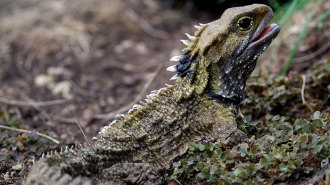 Genetics
GeneticsLizard-like tuatara carry two distinct mitochondrial genomes
Having two mitochondrial genetic instruction books, a first for vertebrates, may help explain tuatara’s unique ability to tolerate cold temperatures.
-
 Health & Medicine
Health & MedicineNovavax’s COVID-19 vaccine is effective, but less so with some variants
Novavax’s vaccine fends off the original coronavirus and a U.K. variant, but had more trouble with a South Africa variant.
-
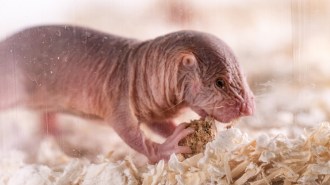 Animals
AnimalsNaked mole-rat colonies speak with unique dialects
Machine learning reveals that these social rodents communicate with distinctive speech patterns that are culturally inherited.
-
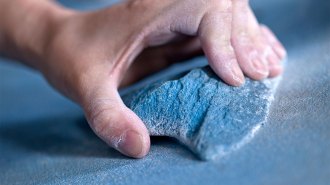 Anthropology
AnthropologyHumanlike thumb dexterity may date back as far as 2 million years ago
A computer analysis suggests early Homo species developed a powerful grip, giving them an evolutionary edge over some other tool-using hominids.
By Bruce Bower -
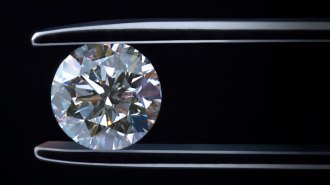 Physics
PhysicsDiamond holds up at pressures more than five times those in Earth’s core
Even when pummeled with lasers, diamond retains its structure, which could reveal how carbon behaves in the cores of some exoplanets.
-
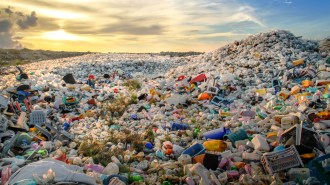 Chemistry
ChemistryChemists are reimagining recycling to keep plastics out of landfills
Recycling plastics is really hard, and usually creates low-quality materials that aren’t good for much. Chemists are trying to change that.
-
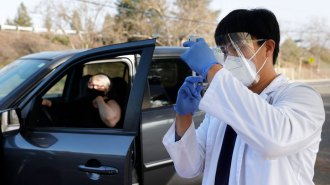 Health & Medicine
Health & MedicineHow coronavirus variants may pose challenges for COVID-19 vaccines
Some coronavirus mutations may make vaccines less effective, but the immune system is multifaceted and vaccines can be updated.
-
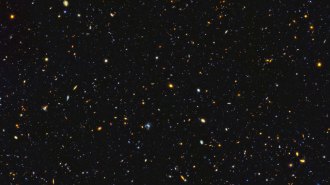 Physics
Physics‘Fundamentals’ shows how reality is built from a few basic ingredients
In ‘Fundamentals,’ physics Nobel laureate Frank Wilczek shares essential lessons from physics.
-
 Math
MathHow one physicist is unraveling the mathematics of knitting
Understanding how knots influence textile properties could lead to bespoke materials.
-
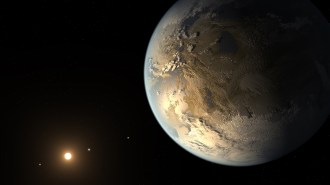 Space
SpaceCrushed space rocks hint at exoplanets’ early atmospheric makeup
Experiments that heat crushed-up meteorites are helping astronomers understand what to look for in exoplanet atmospheres.
-
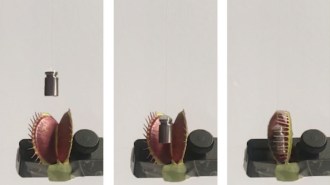 Tech
TechA robot arm toting a Venus flytrap can grab delicate objects
By attaching electrodes to the plant’s leaves, researchers found a way to snap its traps shut on command.
-
 Climate
ClimateHow much will Africa capitalize on cheap renewable energy as its power grid grows?
An analysis of the successes and failures of past electrical power projects across Africa suggests the continent isn’t likely to go green before 2030.